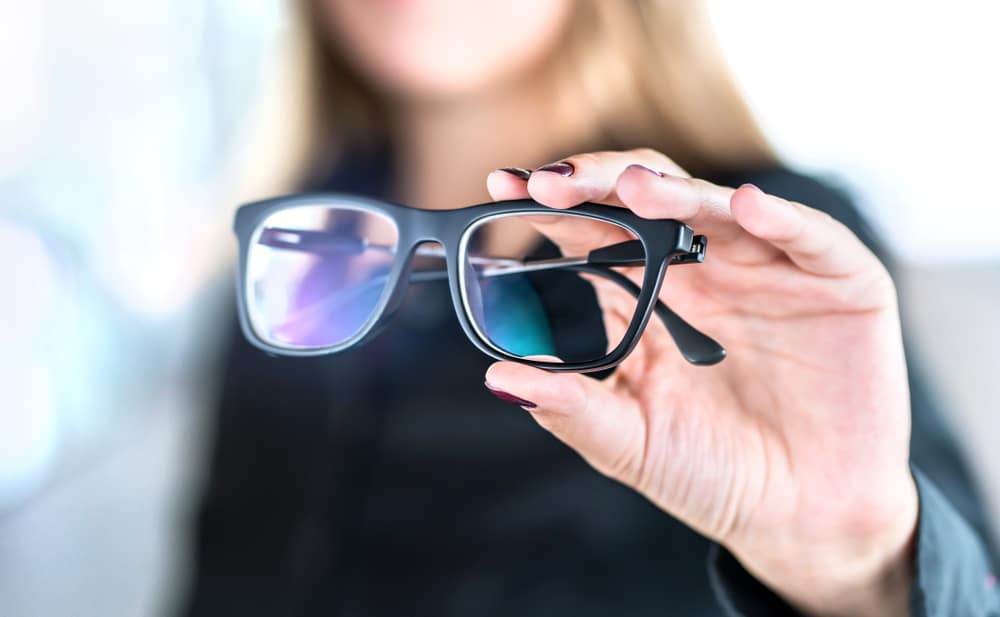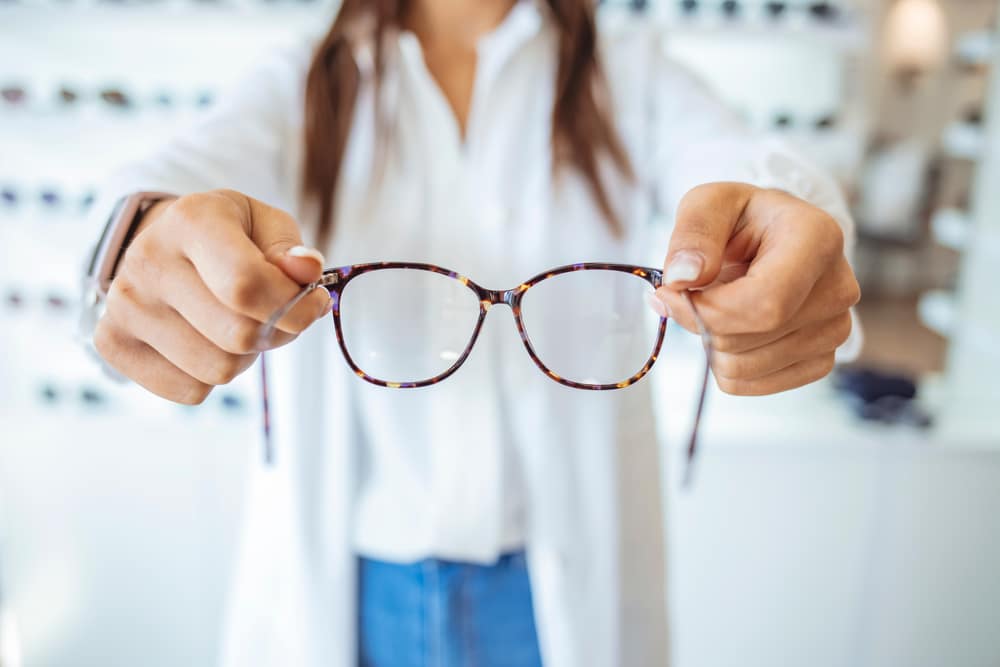If you’re 40 or older and are wondering how best to combat age-related vision decline, consider getting a pair of progressive lenses or bifocals. Both options have pros and cons, and we’ll weigh them below. An age-related vision decline is widespread, and it’s primarily thanks to a condition called Presbyopia.
Presbyopia is a condition in which the eyes gradually lose their flexibility over time, making it more challenging to focus on nearby objects. The American Optometric Association estimates that over 100 million Americans, nearly 90% of adults over age 45 suffer from this condition.
Whether you already wear glasses or not, you’ll need to address this additional decline in your vision with an experienced Optometrist. The solution often involves combining contacts with reading glasses, wearing bifocals (or even trifocals), or embracing progressive lenses. If you find yourself struggling with reading or focusing on close-up objects, it’s time to talk to our Nashville Optometrist.
Discover more about progressive lenses, bifocals, and trifocals, and let us help guide you to the best solution. In addition to offering comprehensive eye exams and cutting-edge treatments, we also have the best selection of designer frames in Nashville, not to mention budget-friendly frames. Book a comprehensive eye exam with our Nashville Optometrist today, and let’s get you started on the road to excellent vision.

Solutions to Address Presbyopia
Presbyopia is one of the most common eye-related disorders, affecting hundreds of millions worldwide. As we age, natural changes to the shape of our eyes’ lenses make it more challenging to focus on objects—particularly those close-up. This is why it’s so common for older adults to grab a pair of reading glasses from the Drugstore shelves.
The most common treatment for Presbyopia is corrective lenses, but there are several options available. Traditionally, aging adults have used bifocal lenses, which offer different levels of correction for far-away and close-up objects. Today, however, there’s another choice that offers a seamless multifocal experience: progressive lenses.
What are Bifocal Lenses
You’re likely familiar with bifocal lenses, even if you’ve never worn them. Bifocals are lenses that incorporate two different prescriptions into the same pair of glasses. There’s a visible line between the two, with the lower portion addressing Presbyopia and the remainder of the lens treating nearsightedness.
Another option, particularly helpful for those who spend a lot of time working at a computer, is trifocal lenses. These lenses provide additional focus clarity at intermediate distances. Understandably, trifocals and bifocals can be complex and aren’t always the most convenient for users.
A New Choice With Progressive Lenses
Progressive lenses are becoming an increasingly popular choice for adults who want to address age-related changes in their vision without the telltale signs of bifocal lenses. For many, progressive lenses are an attractive alternative, especially for those needing increased magnification at various distances.
Progresses lenses seamlessly blend multiple prescriptions into a continuous lens, eliminating the telltale lines and sometimes jarring jump in the prescription of bifocals and trifocals. To take advantage of the different focus levels, you have to tilt your head to transition effortlessly between the various focal points. Though progressive lenses function similarly to trifocals, with far-away, intermediate, and close-up focal ranges, the transition between these three points is much more gradual and is generally considered easier.
Though progressive lenses are an excellent solution for people dealing with Presbyopia, they also require some practice. You’ll have to train yourself to look out of different parts of your glasses, depending on the activity you’re engaged in. Though jarring at times, the visible line of bifocals and trifocals can be a helpful guide.

The Best Designer Frames in Nashville
If you’re ready to transition to progressive lenses, our Nashville Optometrist is here to help. Music City Optical is located on the world-famous Music Row, just a mile from Broadway in downtown Nashville. We are a full-service clinic in the heart of Nashville. Our optical boutique features a luxury collection of designer frames and precision lenses to ensure your perfect fit.
Our optical boutique carries a wide variety of designer frames, including Lafont, Persol, and Tom Ford. We also offer an extensive range of budget-friendly frame brands, all with a modern feel and comfortable fit. Whatever you’re looking for, we have a broad array of designer frames in Nashville and will take the time to ensure the perfect fit and choice of lenses for you. Get started with your comprehensive eye exam today!


